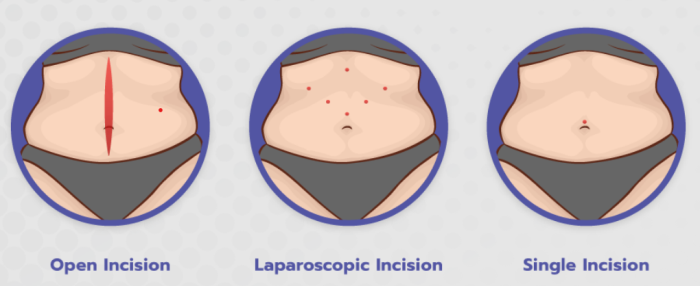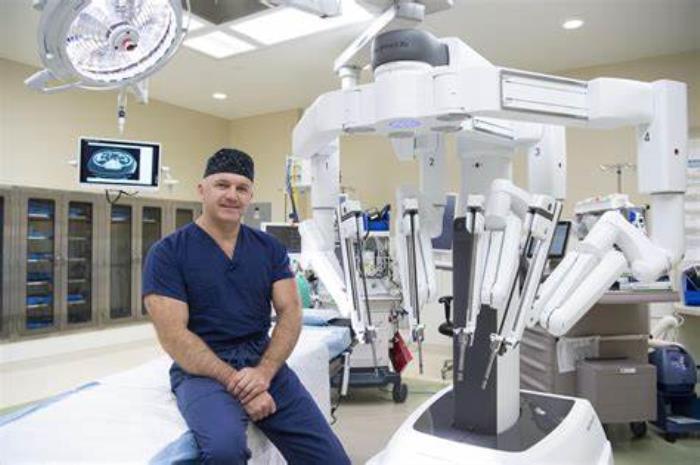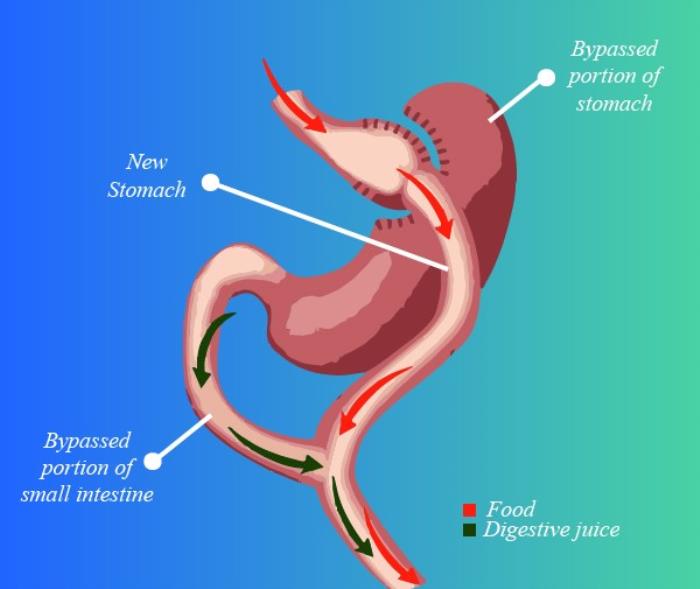Mini Gastric Bypass (MGB) surgery is a bariatric procedure designed to help individuals achieve significant weight loss by reducing the stomach size and rerouting the intestines. This surgery combines aspects of both restrictive and malabsorptive techniques, meaning it limits food intake and reduces calorie absorption. Unlike traditional gastric bypass surgery, the mini gastric bypass involves a simpler, shorter procedure with fewer surgical steps, making it less invasive and often leading to quicker recovery times. It has become a popular choice for patients seeking effective weight loss with lower risks and complications.
The Evolution of Bariatric Surgery: From Traditional to Mini Gastric Bypass
Bariatric surgery has evolved considerably over the years, from the early development of open gastric bypass surgeries to the more refined and minimally invasive techniques available today. Traditional gastric bypass surgery, or Roux-en-Y, has long been the gold standard for treating morbid obesity. However, advancements in surgical techniques have led to the development of the Mini Gastric Bypass, which offers similar weight loss outcomes with a simplified approach. This evolution reflects ongoing efforts to improve patient safety, reduce recovery time, and enhance the overall effectiveness of bariatric procedures.
Key Differences Between Mini and Traditional Gastric Bypass
The primary difference between Mini Gastric Bypass and traditional gastric bypass lies in the surgical technique. In Mini Gastric Bypass, the stomach is divided into a small pouch, and a single loop of the small intestine is attached directly to it. This differs from the traditional Roux-en-Y gastric bypass, which involves creating two separate intestinal connections, requiring more complex rerouting of the digestive tract. As a result, the Mini Gastric Bypass is a shorter procedure with less operative time, reduced risk of complications, and faster recovery, while still providing substantial weight loss and health benefits.

Recent Innovations in Mini Gastric Bypass Surgery
Recent innovations in Mini Gastric Bypass surgery have focused on making the procedure even less invasive and improving patient outcomes. Advances in laparoscopic techniques have reduced incision sizes, which leads to less scarring and quicker healing. Additionally, enhanced imaging technology has enabled more precise surgical execution, minimizing the risks associated with the procedure. Research into combining the Mini Gastric Bypass with other metabolic treatments is also ongoing, aiming to improve long-term weight loss results and address obesity-related health conditions like diabetes more effectively.
Single-Incision Mini Gastric Bypass: A Less Invasive Approach
One of the most significant advancements in bariatric surgery is the development of single-incision techniques for Mini Gastric Bypass. Instead of multiple incisions, the surgery is performed through a single small incision, often at the navel, resulting in reduced scarring and quicker recovery. This approach is particularly appealing to patients concerned about the aesthetic impact of surgery and those looking for the least invasive method available. Single-incision surgery further minimizes postoperative pain and recovery time, making it an attractive option for patients seeking a faster return to normal activities.

Laparoscopic Advances in Mini Gastric Bypass Techniques
Laparoscopic surgery has revolutionized the field of bariatric surgery, and its application in Mini Gastric Bypass has led to improved safety and outcomes. Laparoscopic techniques involve using small incisions and a camera to guide the surgery, offering greater precision and a less invasive approach compared to open surgery. These advances have reduced the risk of complications such as infection, bleeding, and hernias. Laparoscopic Mini Gastric Bypass also allows for shorter hospital stays and quicker recovery, making the procedure more accessible and appealing to patients who want to minimize downtime and discomfort.
Robotic-Assisted Mini Gastric Bypass: Precision and Safety
Robotic-assisted surgery has revolutionized bariatric procedures, offering enhanced precision and control during mini gastric bypass (MGB). Surgeons use robotic arms to make delicate, minimally invasive movements, which reduces tissue trauma and enhances safety. The increased precision of robotic systems also contributes to more consistent outcomes and quicker recovery times for patients.

Enhanced Stapling Techniques for Improved Outcomes
Stapling plays a critical role in creating the small stomach pouch in MGB surgery. Innovations in stapling technology, such as advanced staplers with enhanced sealing mechanisms, minimize the risk of leaks and bleeding. These improvements also result in better tissue healing and reduced post-surgical complications.
Customizing the Procedure: Tailoring to Individual Patient Needs
Modern mini gastric bypass techniques allow for greater customization based on a patient’s anatomy, weight, and health goals. Surgeons can adjust the length of the bypassed intestine, the size of the stomach pouch, and other factors to optimize weight loss and nutritional outcomes while minimizing complications.
Innovations in Digestive Tract Reconstruction
New methods in digestive tract reconstruction, such as the use of 3D imaging and tissue-guided techniques, improve the precision of connections made during surgery. These advancements help ensure a better match between the stomach and intestine, reducing the risk of strictures, leaks, or other complications.

Reducing Surgical Complications Through Technological Advancements
Technological innovations such as real-time imaging, intraoperative monitoring, and improved surgical tools have significantly reduced the risk of complications in mini gastric bypass surgery. These advances help surgeons avoid damage to critical structures, improve healing, and enhance patient safety.
Minimizing Recovery Time with New Surgical Methods
Minimally invasive techniques, such as single-incision or laparoscopic MGB, contribute to faster recovery times. Smaller incisions mean less pain, reduced scarring, and shorter hospital stays. Patients can typically return to their daily routines more quickly compared to traditional open surgeries.
The Role of Endoscopic Techniques in Mini Gastric Bypass
Endoscopic techniques are increasingly used in mini gastric bypass to enhance the safety and outcomes of the procedure. Surgeons can now perform certain aspects of the surgery, such as examining the inside of the digestive tract or correcting complications, without the need for invasive incisions.
Long-Term Weight Loss Success: Impact of Advanced Techniques
Innovations in MGB, including the ability to tailor the surgery to patient needs and employ advanced stapling and reconstruction techniques, lead to sustained weight loss. Long-term success is linked to the precision of the initial surgery, which promotes healthier digestion and nutrient absorption.
How 3D Imaging and Surgical Planning Improve Outcomes
The use of 3D imaging and virtual surgical planning helps surgeons visualize the anatomy in detail before the procedure. This allows for a more precise surgical approach, reducing the chances of errors, and improving the alignment and connections between the stomach and intestines.
Innovations in Post-Surgery Monitoring and Follow-Up
Advancements in remote monitoring and post-operative care technologies enable doctors to track patient recovery more effectively. Wearable devices and mobile health apps allow patients to report symptoms in real-time, ensuring that any complications are detected and managed early.
Patient Experiences with New Techniques in Mini Gastric Bypass
Patients undergoing mini gastric bypass with the latest innovations often report improved experiences, including reduced pain, faster recovery, and long-term weight loss. Many patients appreciate the minimally invasive nature of the procedure and the shorter hospital stays.
Innovations in Pain Management and Recovery After Surgery
Enhanced pain management protocols, including the use of local anesthetics and non-opioid medications, help minimize discomfort after surgery. Innovations like robotic precision and reduced incision sizes also contribute to a more comfortable recovery experience for patients.
Comparing Mini Gastric Bypass Innovations with Other Bariatric Procedures
When compared to other bariatric surgeries like Roux-en-Y gastric bypass or sleeve gastrectomy, innovations in mini gastric bypass offer comparable or superior outcomes with fewer complications. MGB’s single-loop anastomosis and tailored techniques are often preferred for their simplicity and effectiveness.
Conclusion: The Future of Mini Gastric Bypass Surgery
As technology continues to evolve, mini gastric bypass surgery is becoming even safer, more effective, and more customized to individual patient needs. Robotic assistance, advanced imaging, and improved post-surgical monitoring are paving the way for even better outcomes in the future.
Understanding the Benefits of Mini Gastric Bypass for Managing Diabetes
Explore the significant benefits of Mini Gastric Bypass in diabetes management. This section discusses how this procedure can lead to improved blood sugar levels, reduced reliance on medications, and overall better health outcomes for individuals with type 2 diabetes.
Mini Gastric Bypass for Adolescents: Is It a Viable Option?
Learn about the considerations surrounding Mini Gastric Bypass for adolescents. This section evaluates the potential benefits and risks, along with the importance of a comprehensive evaluation and support system for young patients seeking surgical weight loss options.
Best Mini Gastric Bypass Surgery in India
The Best Mini Gastric Bypass Surgery in India offers a less invasive weight loss procedure, helping patients achieve significant and sustained weight loss by reducing stomach size and rerouting digestion.
Best Mini Gastric Bypass Hospitals in India
The Best Mini Gastric Bypass Hospitals in India are equipped with modern technology and skilled bariatric teams, ensuring comprehensive care from pre-operative assessment to post-operative follow-up.
Mini Gastric Bypass Surgery Cost in India
The Mini Gastric Bypass Surgery Cost in India is affordable, offering transparent pricing and flexible options without compromising on the quality of care at leading hospitals.
Best Mini Gastric Bypass Surgeons in India
The Best Mini Gastric Bypass Surgeons in India are highly experienced in performing this procedure, providing personalized treatment plans to help patients achieve the best possible outcomes.
FAQ:
How does mini gastric bypass surgery differ from traditional methods?
Mini gastric bypass surgery differs from traditional methods by using a single anastomosis (connection) between the stomach and the intestine, making it less complex and reducing surgical risks compared to more invasive procedures like Roux-en-Y gastric bypass.
What are the latest innovations in mini gastric bypass techniques?
Innovations include robotic-assisted surgery, enhanced stapling technologies, endoscopic methods, and 3D imaging, all of which improve precision, safety, and recovery outcomes.
How do robotic-assisted surgeries improve mini gastric bypass outcomes?
Robotic-assisted surgeries allow for greater precision, minimizing tissue damage and reducing the risk of complications, while also enabling faster recovery and better post-operative results.
What are the benefits of single-incision mini gastric bypass surgery?
Single-incision surgery reduces scarring, minimizes pain, and leads to faster recovery times. It also offers better cosmetic results and decreases the risk of infection.
How long is the recovery period with the latest surgical innovations?
With the latest minimally invasive techniques, recovery time is significantly reduced. Most patients can return to normal activities within two to four weeks, depending on their individual case.